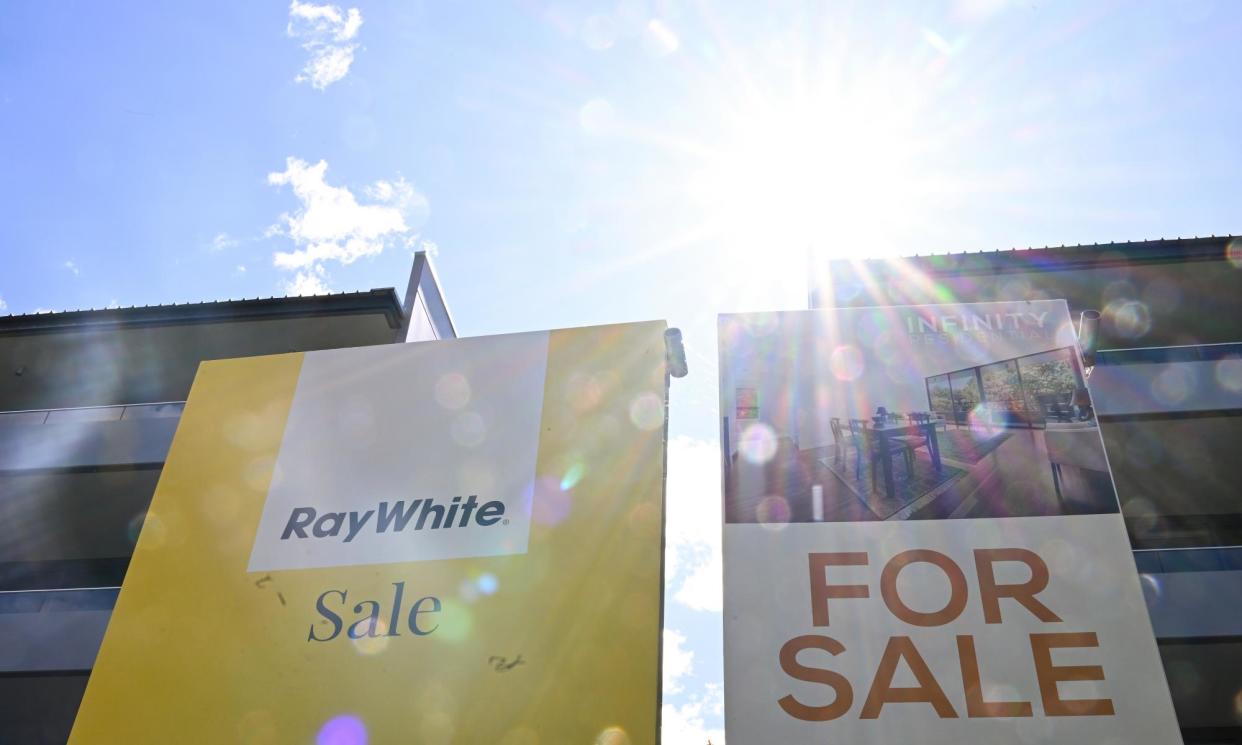Guardian Essential poll: voters back Coalition’s super for homes and Greens housing policy

Australians think the housing system is failing and support a range of more radical solutions, including the Coalition’s push to use super for housing and the Greens’ public sector property developer.
Those are the results of the latest Guardian Essential poll of 1,165 voters which sends a warning shot to the Albanese government and state governments to do more to combat falling home ownership and higher rents.
Fewer than one in 10 (9%) of respondents said the housing system was “largely working well” for homeowners and renters and “does not require change”. Some 43% thought the system was “fundamentally broken” and 47% said it was “not working in some parts and needs change in those areas”.
Related: ‘Scope for exploitation’: investors eye rooming house conversions amid Melbourne rental crisis
More respondents were hoping that house prices would reduce (40%) or stabilise (45%) than wanted to see them continue to rise (15%).
The majority (73%) of respondents believe housing “should be a basic human right that everyone should have access to”, far higher than those who described it as a “foundation for vibrant neighbourhoods and communities” (18%) or “a vehicle for growing personal wealth” (9%).
But asked how the housing system was now operating, 35% described it as a “vehicle for growing personal wealth”.
In March Guardian Australia revealed the Coalition was looking to expand its super for housing policy including allowing first home buyers to withdraw more and existing homeowners to pay super into a mortgage offset account. The Greens have proposed a public property developer to build and sell or rent properties at below-market rates.
According to the poll, the most popular housing policy is to “provide additional support to not-for-profit community housing providers to deliver social housing”, a proposition supported by 68% of respondents.
There was also majority support for allowing first home buyers to use super for housing (57%), expanding public sector property development to limit private sector property prices (56%), and a shared equity scheme (54%).
Last year the Albanese government legislated the Housing Australia Future Fund and tipped $3bn more into social and affordable housing during negotiations with the Greens. Labor’s remaining unlegislated election commitment on housing is the Help to Buy shared equity scheme, which faces resistance and delay from the Coalition and Greens.
The Greens and crossbench want the government to crack down on negative gearing and capital gains tax concessions, a policy supported by 51% of the poll respondents.
Respondents gave poor marks to all levels of government for their handling of housing:
On the state government’s role to “provide social housing and regulate rentals”, 50% said it was doing a poor job while 19% said it was doing a good job.
On the federal government’s role to “set policies on how homes should be taxed”, 47% said it was doing a poor job and 19% said a good job.
On the local government’s role to “establish planning rules for local communities”, 41% said it was doing a poor job and 23% said a good job.
In positive news for the government, voters approved of the central measures of its deportation bill, which was introduced last Tuesday then stalled by the Coalition and the Greens on Wednesday, when the poll was in the field.
Asked if they support a policy that “non-citizens who refuse to cooperate with deportation can be punished with a minimum of one year in prison”, 51% said they supported it, 17% opposed and about a third (32%) neither supported nor opposed.
Asked if they support a policy that “countries who refuse to accept people deported by Australia can be blacklisted from further visa applications”, half (50%) were in favour, 15% opposed and a bit over a third (35%) neither supported nor opposed.
Voters’ view of the economy was a little rosier than February 2023, with 4% saying it would get “a lot better” in the next 12 months, down a point, 16% “a little better”, up two, and 27% “stay the same”, up seven points.
One-quarter (25%) said the economy would get “a little worse”, down seven points, while almost a quarter (23%) said it would get “a lot worse”, down a point.
But respondents still reported difficulties in their personal finances, with 42% describing themselves as “struggling a bit” because they “have to watch the budget to make sure there’s enough money for all the bills”, up four points from a fortnight ago.

 Yahoo News
Yahoo News 
